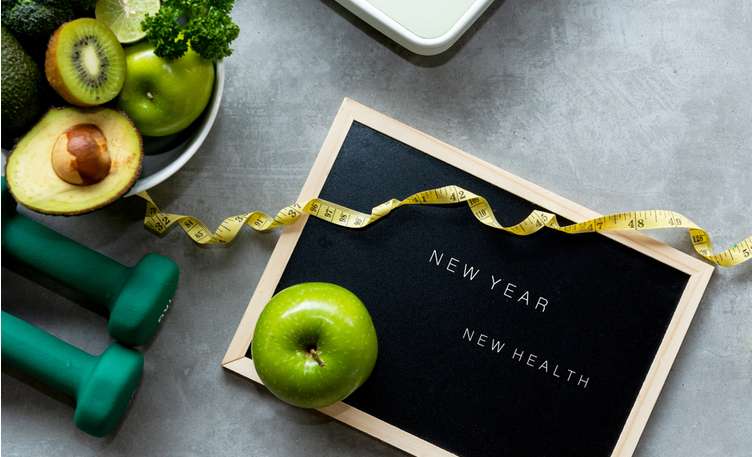10 Health Trends for 2020

The last decade was all about high intensity workouts, different kinds of diet, gadgets that could measure your movements, and a gradual shift from meats to alternatives. But the coming decade is about slowing down.
From workout routines to drinking habits, let’s look at what shift 2020 promises for our health and wellness.
1. Plant-based diet

Plant-based diet doesn’t mean you’re vegetarian or vegan. It simply means you proportionately choose the source of your food, primarily from plants. This includes fruits, vegetables, nuts, seeds, oils, whole grains, lentils, and beans.
Plant-based diets can provide you with all the necessary nutritional elements like protein, fats, carbohydrates,minerals, vitamins, and fiber.
A balanced, plant-based meal will include:
- Vegetables: kale, spinach, tomatoes, cauliflower, potatoes, squash, etc.
- Whole grains: brown rice, oats, quinoa, barley, etc.
- Legumes: peas, chickpeas, lentils, peanuts, beans, etc.
- Plant-based protein like tofu or tempeh
- Nuts and nut butters
- Seeds
- Fruits
- Plant-based oils
- Spices and herbs
2. High Intensity, Low Impact Training
With the shift from high intensity workouts to slower lifestyle, low impact training is likely to make its way into wellness and fitness trends in 2020.
High intensity, low impact training, also known as HILIT, will give you all the benefits that HIIT routine gave you - increased metabolism, enhanced oxygen utilisation, reduced heart-rate, and optimal blood pressure and blood sugar levels - but in a low impact environment that will also help conserve energy and not stress you out. It also ensures proper recovery time and less strain on the joints.
3. Standing More for Good Health

The dangers of a sedentary lifestyle are far more concerning that we had anticipated.
The World Health Organisation (WHO) has listed physical activity as the fourth leading risk factor for global mortality, causing an estimated 3.2 million deaths globally.
Prolonged sitting has been linked to multiple health conditions like obesity, diabetes, and cardiovascular diseases. Learn more about the harmful effects of sitting here.
Research shows that standing, or taking short walks during your workday can alleviate the risk of many diseases. That serves as a good enough reason to incorporate standing desks at workplaces. For every 1-2 hours of sitting at your desk, you must alternate it with 1-hour of standing.
4. Importance of Sleeping Well
The long term effects of sleep deprivation is not something to be taken lightly. It can increase your risk of various health conditions like diabetes, heart diseases, stroke, and depression. Learn what lack of sleep can do to your body here.
The trend from here on is to not only get the recommended 7-9 hours of sleep, but also focus on uninterrupted, quality sleep.
From mobile applications that help you snooze better, to alternative medicines for a good night’s sleep, 2020 is all about the 40 winks, but growing.
5. Working Out from Home

When we’re pressed for time, but want to include fitness into our daily regime, home workout comes to the rescue.
As people are increasingly shifting focus towards health and wellness, customised workouts at home are making an appearance.
6. Wearable Technology
We’ve already been introduced to smartwatches and health tracker mobile applications. But this year will see a boost in the wearable technology industry.
“Wearable tech has become ingrained in today’s culture, and the industry shows no signs of slowing down,” said American College of Sports Medicine (ACSM) Past President Walter R Thompson.
Smart watches, sleep trackers, and activity trackers that you can wear around are the next big things in fitness and wellness.
7. Wellness Vacations

Wellness vacations, or sleepcations, depending on what you’re looking for, is slowly making its way into the health and wellness trends for 2020.
With the focus on quality of life, sleep, and stress reduction, wellness vacations literally come as respite. These vacations are designed to help you detox and destress from the vagaries of life, leaving you feeling refreshed.
Vacations, or simply put, planned breaks, allows your body to recover from the stress and lack of sleep that you’ve subjected it to. They help increase productivity, reduce the effects of stress on your body, and improve your quality of sleep.
8. Sugar Alternatives
The FSSAI (Food Safety and Standards Authority of India) has mandated packaged food high in fat, sugar, and salt to be declared on packaging.
This action will help consumers know how much sugar they’re consuming, and when to look for an alternative. Refined sugar is detrimental to our health. Read more on the truth about added sugar.
Consumers are now looking for natural, or organic alternatives to refined sugar like honey, jaggery, palm sugar, and molasses.
9. Corporate Wellness

With work pressure and stress levels increasing, mental health is becoming a major concern for young professionals in India.
However, with big celebrities coming forward to talk about therapy and mental health, organisations are shifting focus to implementing new policies and wellness centres for their employees.
10. Circadian-synced Intermittent Fasting
The newest update in the field of diets and weight loss suggests we take a look at not just what we eat, but also when we eat.
Our body’s metabolism is adjusted to our Circadian rhythm - your body’s clock. Eating out of sync with your body can increase your risk of various health conditions like cardiovascular diseases, obesity, and diabetes.
“There is evidence to suggest that the circadian rhythm fasting approach, where meals are restricted to an eight to 10-hour period of the daytime, is effective,” - metabolic expert Dr. Deborah Wexler, Director of the Massachusetts General Hospital Diabetes Center and Associate Professor at Harvard Medical School.
Just eating according to your body’s clock can help you reap the benefits of a diet that you’ve so long been following for, but to no avail. However, medical experts suggest you consult your dietician before opting for any diet or nutrition plans.


